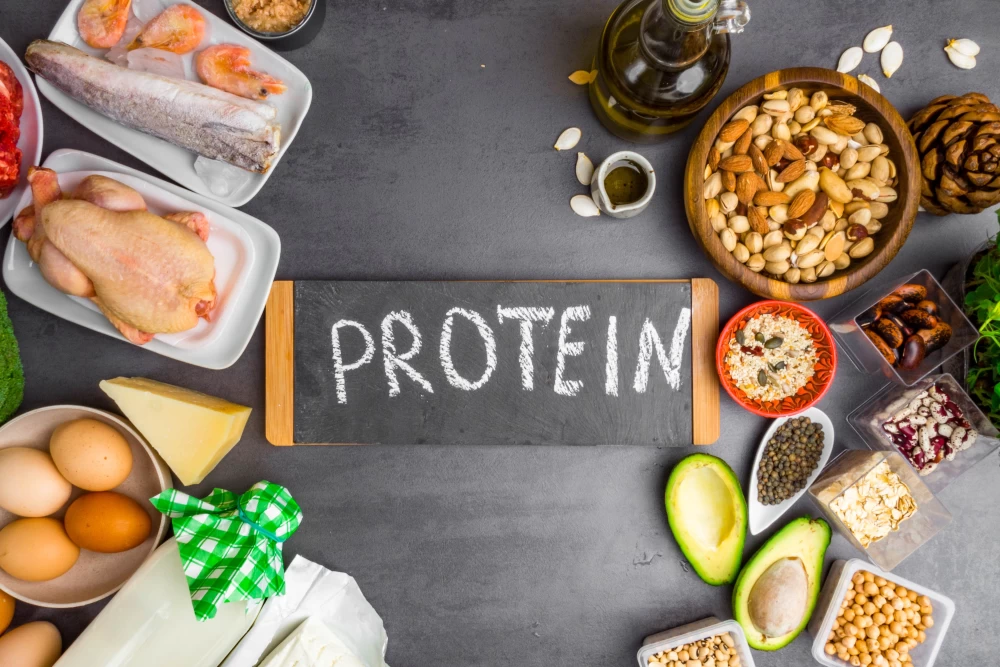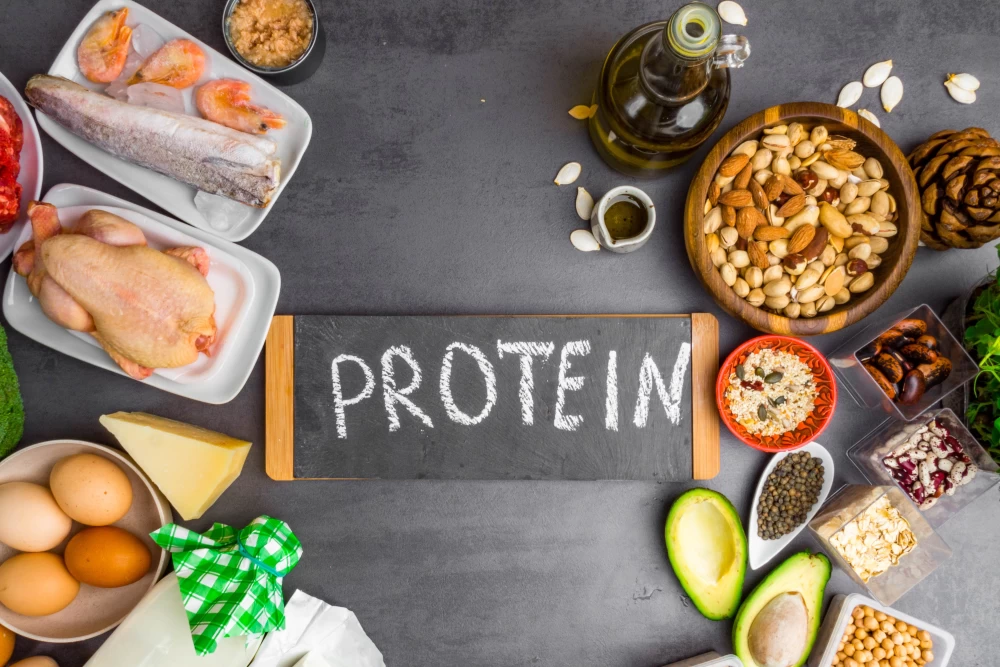
- 20th March 2023
Table of Contents
High Protein Fatty Liver Diet
When it comes to managing fatty liver disease, diet plays a crucial role. Consuming a high protein diet may be beneficial in improving liver health and reducing the risk of developing complications associated with the disease. However, not all sources of protein are created equal. Opt for lean proteins such as chicken breast, turkey, fish and seafood instead of red meat or processed meats that are high in saturated fats. Incorporating plant-based proteins like legumes, beans and nuts can also be an excellent addition to a high protein fatty liver diet. These plant-based foods are great sources of fiber which helps reduce inflammation and improve overall gut health. Avoid consuming sugary drinks and foods that contain added sugars since they can worsen fatty liver disease. It is important to note that maintaining a balanced diet with moderate amounts of protein is crucial as excessive consumption can lead to negative effects on kidney function for those with pre-existing kidney issues. Consultation with a registered dietician or healthcare provider can help determine the appropriate amount of protein needed based on individual needs and medical history.
What is Fatty Liver?
Fatty liver disease, also known as hepatic steatosis, is a condition characterized by the accumulation of excess fat in the liver. This build-up of fat can lead to inflammation and scarring of the liver tissue, which can ultimately result in liver damage or even failure if left untreated. Fatty liver disease is often associated with excessive alcohol consumption, but it can also be caused by factors such as obesity, high blood sugar levels and insulin resistance. When it comes to managing fatty liver disease, diet plays a critical role. A high protein diet that is low in carbohydrates and sugar has been shown to be effective in reducing fat accumulation in the liver. Foods that are rich in protein include lean meats like chicken and fish, eggs, legumes like lentils and beans, nuts and seeds. On the other hand, foods that are high in processed sugars should be avoided as they contribute to inflammation and further damage to the liver. This includes sugary drinks like soda or fruit juice as well as baked goods like cookies or pastries. Additionally, individuals with fatty liver disease should limit their intake of saturated fats found in red meat and full-fat dairy products. Instead opting for healthier sources of fats such as avocadoes or olive oil may reduce inflammation while supporting overall health.
Benefits of a High Protein Diet
A high protein diet may benefit individuals with fatty liver disease, as it can aid in weight loss and improve insulin sensitivity. Protein helps to build lean muscle mass, which is important for reducing body fat and improving overall metabolic function. Additionally, a high protein diet can help to reduce cravings and promote feelings of fullness. When following a high protein diet for fatty liver disease, it's important to choose healthy sources of protein. Lean meats like chicken or turkey breast, fish, tofu, nuts and seeds are all great options. Avoid processed meats like bacon or sausage as they are often high in saturated fat and sodium. It's also important to balance a high protein diet with other nutrients. Incorporating plenty of non-starchy vegetables like leafy greens or broccoli can provide essential vitamins and minerals while adding fiber to the diet. Overall, a balanced approach to nutrition that includes adequate amounts of healthy proteins is key in managing fatty liver disease.
Foods to Eat on a High Protein Fatty Liver Diet

When it comes to a high protein fatty liver diet, there are certain foods that can help promote liver health and reduce inflammation. One of the best sources of protein for this type of diet is lean meats such as chicken, turkey, and fish. These options not only provide ample amounts of protein but also contain healthy fats like omega-3s that can help reduce liver fat accumulation. Another great source of protein for those on a high protein fatty liver diet is plant-based proteins such as beans, lentils, and tofu. These options are not only high in fiber but also contain essential vitamins and minerals that support overall liver function. Lastly, incorporating healthy fats into your diet can be beneficial when trying to combat fatty liver disease. Foods like avocado, nuts, seeds, olive oil, and fatty fish all provide healthy fats that can improve insulin sensitivity and reduce inflammation in the liver. It's important to remember to balance these healthy fats with a moderate intake as too much can lead to weight gain which could exacerbate fatty liver disease symptoms.
Foods to Avoid on a High Protein Fatty Liver Diet
When following a high protein fatty liver diet, it is important to avoid certain foods that can worsen the condition. One of the primary culprits to avoid is alcohol as it can contribute significantly to liver damage. Processed foods such as those high in sugar and refined carbohydrates should be avoided as well since they can cause inflammation within the body. Another group of foods to avoid on a high protein fatty liver diet are those that are high in saturated fats. This includes items like red meat, butter, cheese, and fried foods. Consuming too much of these types of fats can lead to increased cholesterol levels which may further exacerbate fatty liver disease. Instead, consider incorporating healthy fats such as those found in nuts, seeds, and avocados into your diet. Lastly, individuals with fatty liver disease should limit their intake of salt or sodium-rich food items. Excessive sodium consumption can lead to fluid retention and swelling which may place additional strain on the liver. It's essential to read labels carefully when selecting food products and opt for lower-sodium options whenever possible. By avoiding these specific types of foods, individuals with fatty liver disease can help support their overall health while working towards better managing their condition through dietary changes.
Tips for Following a High Protein Fatty Liver Diet
A high protein fatty liver diet is essential in managing and preventing the progression of non-alcoholic fatty liver disease. One of the critical tips for following this diet is to consume more plant-based proteins, such as beans, lentils, nuts, and seeds. These plant-based proteins are an excellent source of fiber that helps improve gut health and reduce inflammation. Another tip is to incorporate healthy fats into your diet while avoiding unhealthy fats found in processed foods like baked goods and fried foods. Healthy fats can be obtained from avocados, olive oil, nuts, seeds, and fatty fish like salmon. Consuming these types of healthy fats will help reduce inflammation levels in the liver. Lastly, it's important to avoid consuming too much sugar or refined carbohydrates as they can negatively impact liver health. Instead, opt for low-glycemic index foods like fruits with high fiber content or whole grains like quinoa or brown rice. By following these tips for a high protein fatty liver diet, you'll be well on your way to better liver health overall!
Conclusion
In conclusion, it is important to note that a high protein diet can be beneficial for individuals with fatty liver disease. However, it is important to choose the right sources of protein and avoid excessive amounts of saturated and trans fats. Incorporating lean proteins such as chicken, fish, and plant-based sources like legumes and tofu can be helpful in reducing inflammation in the liver. It is also important to limit or avoid processed foods, fried foods, sugary drinks, and alcohol as they can worsen symptoms of fatty liver disease. Instead, focusing on whole foods such as fruits, vegetables, whole grains, nuts and seeds can provide essential nutrients without contributing to further damage to the liver. Overall, following a well-balanced high protein diet along with regular exercise and weight management can significantly improve the health of individuals with fatty liver disease. It is always recommended to consult with a healthcare professional or registered dietitian before making any significant changes to your diet.














